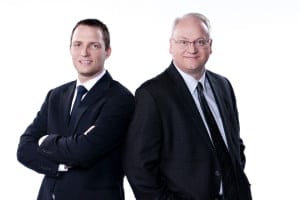By Jeff Grandfield and Dale Willerton – The Lease Coach
Readers of our new book, Negotiating Commercial Leases & Renewals For Dummies, will learn (in part) that there are aspects of the operating costs that can be changed to the tenant’s favor (although most commercial real estate professionals may explain that operating costs are not negotiable). The landlord wants to make sure that the tenants pay for all the operating costs for the property. There’s nothing unusual about that. But when The Lease Coach does an operating cost analysis for groups of tenants in one building, we frequently find that the tenants are subsidizing capital improvements that the landlord is using to enhance or increase the building’s value or allocating costs in ways that are outside of industry norms.
The majority of commercial and retail lease agreements stipulate the specific components of the operating costs that the tenants need to pay for. Typical examples of valid operating costs include general maintenance, painting, lawn cutting, snow removal, property insurance, and so on. Almost every lease agreement has an operating cost clause that typically defines these common area maintenance charges in a short- or long-form manner. From a medical tenant’s perspective, longer is better than shorter as it creates certainty.
If a formal lease document uses sufficient detail to define what constitutes an operating cost, then the medical tenant has a fighting chance to at least examine, question, and negotiate each item. We remember one Florida landlord charging an annual fee to all tenants to have a pool of money available for hurricane damage not fully covered by insurance. Upon closer inspection, we noticed there was no end to this billing or reserve fund – tenants were required to pay it forever. If a tenant moved out at the end of their lease term, they did not get any of the money back that they had paid – even if there had been no hurricane damage. The landlord simply created a slush fund that they could use as they pleased. Look at these types of odd clauses and scrutinize them carefully – after all, it’s your money.
If a medical tenant occupies 7 percent of a commercial property, they can typically be required to pay their proportionate share – 7 percent – of the operating costs as additional rent. But not all tenants use operating costs proportionately. For example, would a hair salon or a bookstore use more water? Would a convenience store or a bank contribute more to parking lot trash collection? Would someone on the first floor or the 20th floor of a building use the elevator more frequently? Have your proportionate share of the operating costs (as a percentage number) actually stated in your lease agreement. Don’t be afraid to question these costs and your proportionate share and examine provisions that allow landlords to allocate costs in a manner other than proportionate share.
You’ve likely heard the old cliché that nothing’s certain except death and taxes. Well, you can add ever-rising operating costs to that short list, too. Rarely do operating costs go down, and they most certainly rise over time. Many medical tenants fall victim to landlords who abuse the operating cost budget and use the tenant’s money to polish their own jewel – their property.
In some cases, a slothful or cash-strapped landlord may have skimped on regular maintenance, but after the property is sold to a more reasonable landlord several years’ worth of deferred maintenance has to be caught up at the expense of the present tenants. With tenants trying to budget for the year, The Lease Coach often successfully negotiates for a 5 to 10 percent cap on operating costs so that the landlord can raise them annually at that amount at a maximum.
For a copy of our free CD, Leasing Do’s & Don’ts for Commercial Tenants, please e-mail your request to [email protected].
Dale Willerton and Jeff Grandfield – The Lease Coach are Commercial Lease Consultants who work exclusively for tenants. Dale and Jeff are professional speakers and co-authors of Negotiating Commercial Leases & Renewals FOR DUMMIES (Wiley, 2013). Got a leasing question? Need help with your new lease or renewal? Call 1-800-738-9202, e-mail [email protected] or visit www.TheLeaseCoach.com.
The Editorial Team at Healthcare Business Today is made up of skilled healthcare writers and experts, led by our managing editor, Daniel Casciato, who has over 25 years of experience in healthcare writing. Since 1998, we have produced compelling and informative content for numerous publications, establishing ourselves as a trusted resource for health and wellness information. We offer readers access to fresh health, medicine, science, and technology developments and the latest in patient news, emphasizing how these developments affect our lives.








